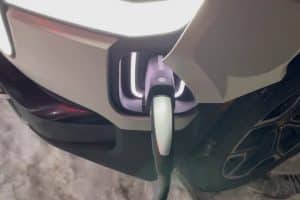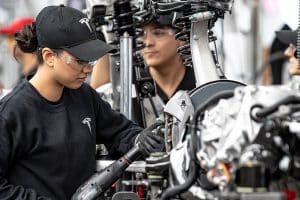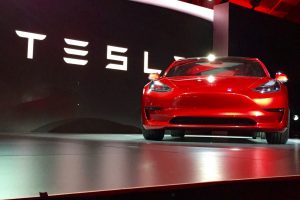Key Points
- 💧 Tesla has recently highlighted its water recycling efforts at Gigafactory Berlin amid past scrutiny over water use.
- 🏭 The Tesla Manufacturing page on X revealed that up to 100 percent of Giga Berlin’s process water is recycled using a state-of-the-art wastewater treatment plant.
- 📸 A photo shared on social media showcases the water treatment plant with multiple tanks and piping, emphasizing the commitment to recycling.
- 🌱 Recycling is emphasized as a key element of sustainability in Tesla’s water management practices.
- 🚧 During construction in 2020, Tesla faced protests over groundwater consumption, leading to legal challenges from environmental groups.
- 🚙 Despite plans to expand Giga Berlin’s production capacity to one million cars, Tesla faced rejection partly due to water supply concerns.
- 💦 Brandenburg Minister of Agriculture Axel Vogel noted that Giga Berlin’s water consumption in its first full year of production was significantly lower than approved levels.
- 📊 Tesla’s water use of 300,000 cubic meters in 2022 was notably less than other businesses in the region, including a coal plant and a waste incineration plant.
- 🔄 The wastewater treatment plant likely contributed to Giga Berlin’s efficient water management, ensuring responsible water use in production.
- 🌍 The disclosure of water recycling efforts reflects Tesla’s ongoing commitment to sustainability and addressing environmental concerns.
In a bid to address environmental concerns and demonstrate its commitment to sustainable practices, Tesla has recently shone a spotlight on its water recycling initiatives at Gigafactory Berlin. This move comes in the wake of past scrutiny over water consumption, signaling a proactive stance by the electric vehicle giant towards responsible resource management.
The Ripple Effect: Tesla’s Water Recycling Revelation
Tesla’s Pledge to Sustainability
Tesla Manufacturing’s recent post on X brings to the forefront the strides made by Gigafactory Berlin in water recycling. With up to 100 percent of the facility’s process water being recycled through an advanced wastewater treatment plant, Tesla underscores the critical role of recycling in achieving sustainability goals.
Navigating Troubled Waters: Past Challenges and Scrutiny
Protests and Legal Battles
The journey towards water sustainability at Gigafactory Berlin hasn’t been without its challenges. During the factory’s construction in 2020, Tesla faced protests regarding groundwater consumption, leading to legal battles with environmental groups. The delicate balance between industrial progress and environmental preservation became a focal point of discussion.
Growth Ambitions: Expansion Plans and Water Woes
One Million Cars, One Water Dilemma
Tesla’s ambitions to expand Gigafactory Berlin’s production capacity to one million cars hit a snag when the Strausberg-Erkner Water Association rejected the proposal in August. The refusal was attributed, in part, to concerns over the water supply. Tesla, however, asserted that the expansion could be executed without an increase in water consumption, garnering support from the state’s Environmental Agency.
Waterwise Wisdom: Minister’s Insights
Axel Vogel’s Verdict
Brandenburg Minister of Agriculture Axel Vogel weighed in on the water consumption debate, stating that Giga Berlin’s actual water use in its inaugural production year was considerably lower than the approved levels. In 2022, the factory utilized just 300,000 cubic meters of water, a fraction of the 1.8 million cubic meters it was sanctioned for. This revelation positions Tesla as a responsible water steward in the region.
Benchmarking Against the Tide: Tesla’s Water Use in Context
Numbers Speak Louder
Comparing Tesla’s water consumption to other businesses in the region paints a compelling picture. In 2022, Giga Berlin’s usage of 300,000 cubic meters stands in stark contrast to entities like the LEAG coal plant (44.8 million cubic meters), the Premnitz waste incineration plant (23 million cubic meters), an oil refinery in Schwedt (13.5 million cubic meters), and the Klaistow asparagus farm (1.09 million cubic meters). Tesla’s frugal water use positions it as a conscientious player in regional resource management.
Turning the Wheels: The Role of Wastewater Treatment
Eco-Friendly Engineering
The wastewater treatment plant, showcased in social media posts, emerges as a pivotal player in Tesla’s water management strategy. Multiple tanks and intricate piping reveal a state-of-the-art system that not only facilitates recycling but also contributes to responsible water use in the production areas of Gigafactory Berlin.
Conclusion: A Clearer Horizon for Sustainability
As Tesla continues to pioneer advancements in electric vehicles, its commitment to environmental sustainability echoes loudly. The disclosure of water recycling efforts at Gigafactory Berlin reinforces the company’s dedication to responsible resource utilization, setting a precedent for eco-conscious manufacturing practices.





